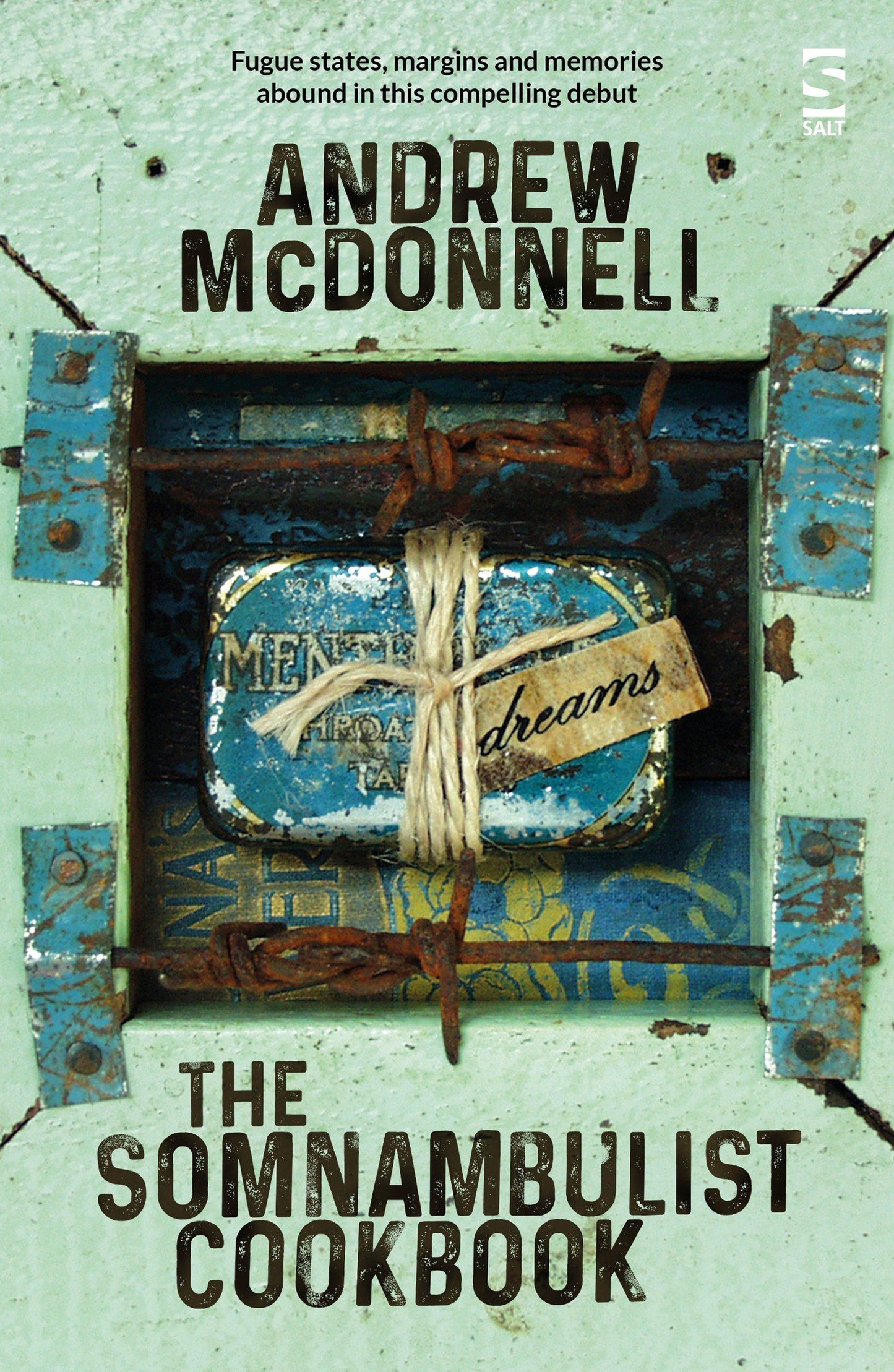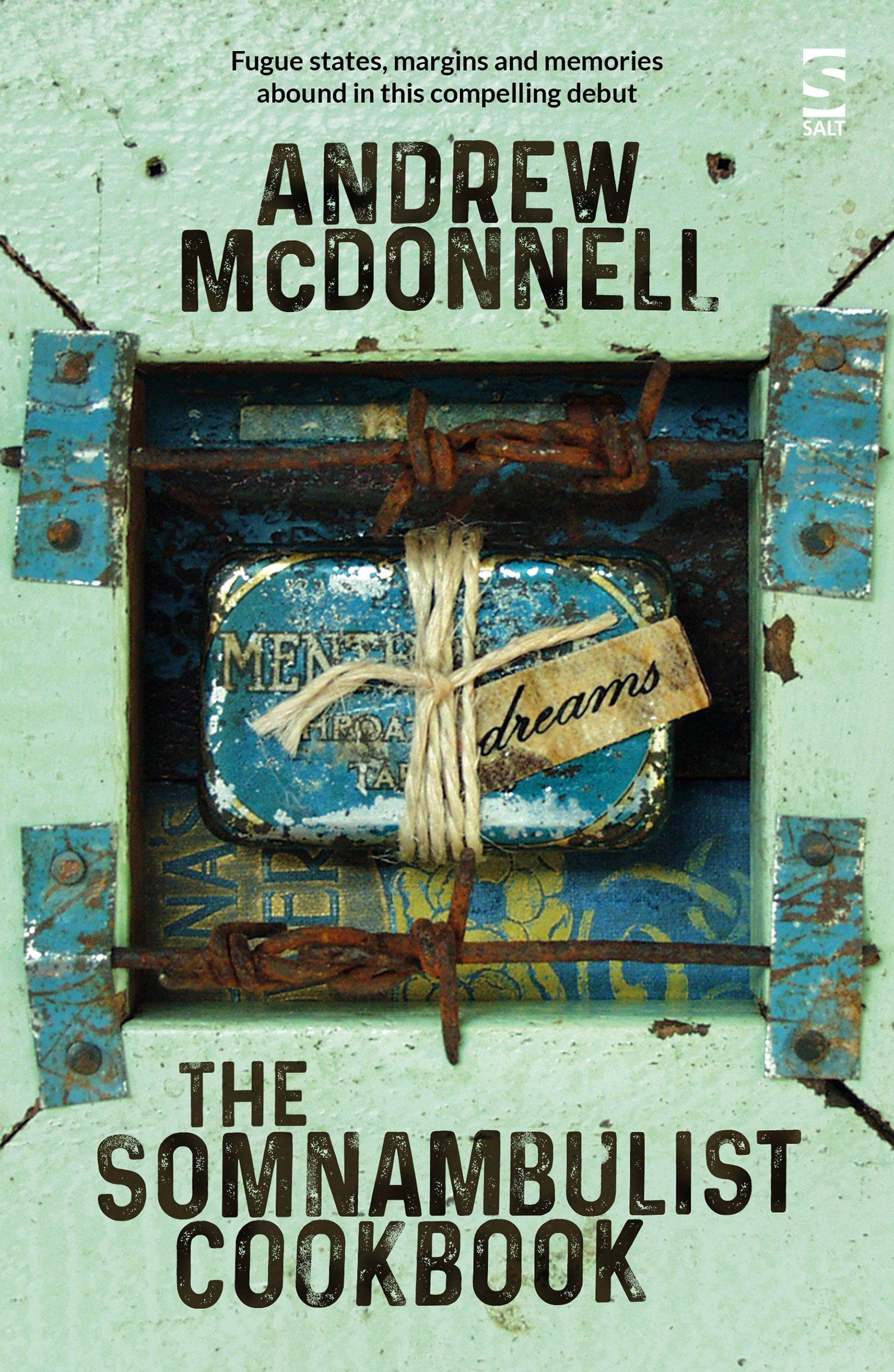Andrew McDonnell
The Somnambulist Cookbook
The Somnambulist Cookbook
ISBN:9781784631994
Couldn't load pickup availability
Available from all UK and Irish bookshops
Synopsis
Lyrical and at times unsettling, The Somnambulist Cookbook explores the quality of disappearance, slowly breaking down as the poems swing from rogue sonnets to fractured prose poems, reminiscent of Larkin, but if he had gone abroad and listened to Pavement rather than jazz. These are poems which haunt the margins of who and what we are, searching for something that has left only a trace on the barbed wire of our nerves.
Praise for this Book
‘The Somnambulist Cookbook lives at the edge of life but cannot help letting go on occasion. It is a book of evanescence, of lost and dreamt locations, of nostalgia, detritus, longing, and hauntings of the apparently insignificant as glimpsed from a passing train.’ —George Szirtes
‘These unsettling poems have a sense of familiarity about them. It’s the voice you hear at 4am when you put the clocks back and summer tips onto its back. In that lost hour the dead speak with accepting humility and the dreamself enters into a labyrinth of supermarket shelves and railway connections. With The Somnambulist Cookbook, Andrew McDonnell proves himself to be an original and haunting new voice for our current spell of history.’ —Helen Ivory
‘This startling and moving debut charts a kind of unmooring – personal and cultural – from the landmarks of the past. Loss – be it of a father, a relationship, youthful illusions or a country pub – stalks the poems, leaving their disorientated narrators struggling to make sense of their increasingly surreal lives. The Somnambulist Cookbook is also a timely exploration of the vexed concept of Englishness – a satirical elegy or elegiac satire on where we find ourselves today. These are poems which map the middle of nowhere – don't leave home without them.’ —Esther Morgan
Reviews of this Book
‘Andrew McDonnell’s debut, The Somnambulist Cookbook, is a mixture of the strange and the ordinary in a clash that generates humour and unease [. . .] McDonnell’s unsettling sense of humour engages with characters that are recognisable but never stereotypical, as well as cultural jetsam, such as “an orange Cortina”, abandoned in an escapist “edgeland” (Everyone Loves a Mystery). As we struggle to come to terms with how we got here – hollowing out of vital national services; sleep walking into globalisation; blithely thinking we could have it all forever, McDonnell shows we are complicit actors in our own demise.’ —Lisa Kelly, Magma Poetry
Product Details
Extent: 64pp
Format: Paperback
Publication Date: 15-Jun-19
Publication Status: Forthcoming
Series: Salt Modern Poets
Subject: Poetry by individual poets
Trim Size: 198 x 129mm
Share


